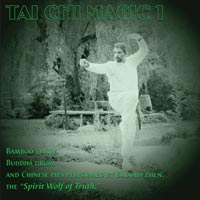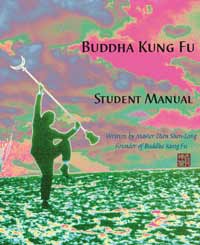| OUR FOUNDER | BOOKs CDs DVDs | BUDDHISM BASICS | CYBERTEMPLE | PODCASTS | SEMINARS | shaolinINTERACTIVE | DONATIONS |

Buddha Zhen
Buddhist Scientist,
American Philospher,
Poet,
Novelist,
Essayist,
Composer,
Musician,
Kung Fu Shifu,
Tai Chi Master,
Freemason
For more Buddhist self-help: |

Tai Chi Magic 1
by Buddha Zhen
8.88

Buddha Builder Book
Download now for $18.88
For more Buddhist self-help:
Visit Buddha Zhen's new website:
ACTzen.com

BUDDHISM BASICS page 2
Buddhism Teaches
Buddhism, although created 500 years before Christ, is still ahead of its time.
Buddhism's primary goal is to redefine or set standards for the Universal Human Ideal.
This Ideal Human would be a Buddha.
You don't even have to be a Buddhist to be a Buddha.
If you possess the qualities and love of the Ideal Human, you are a Buddha, even if you've never heard of Buddhism.
Unfortunately, although all other religions set rules and standards of behavior to define what being a perfect human is, no other religion supplies as many techniques and methods to achieve this human ideal.
For a start, Buddhism teaches that your thoughts and conduct must be voluntary.
If you are merely obeying rules, you are not really supporting the rule. Unless you understand the rule, agree with the rule, believe in the rule, and want to live by that rule...you are only being trained, not developed.
Buddhism teaches each of us to analyze and question every aspect of our life.
One of the biggest obstacles to development are the conditioned responses we may be completely unaware of.
Before you can develop your mind and soul, you must understand
who you are
why you are who you are
why you do what you do
(This is presuming that you can talk, hopefully read and write, have some free undisturbed time to think and reflect, know right from wrong , have compassion, and understand what greed is.)
Sure, Buddhism supplies plenty of answers and rules for living, but mostly it teaches each Buddhist to think about life and who you want to be.
I taught Buddhism in Utah for many years. Many students came to me as an escape from the rigid Mormon religion. Others were devout Mormons desiring only to learn Tai Chi from me.
I taught them all the basics of Buddhism and learned a lot about how Buddhism affects and changes the lives of people.
Although every student benefited to some extent from opening up their mind and looking at the world without so many preconceptions--even those who were rebelling against Mormonism would sometimes reach a level of freedom that scared them.
Like flying in an airplane, some can enjoy it and others fear it.
Buddhism is not the mental parachute that most religions seek to be. I was raised Catholic and I was sternly reprimanded many times for asking too many questions or not showing 'blind faith' in concepts that confused me.
Buddhism teaches each person to ask as many questions as possible. This also creates respect for those with more answers. No one has all the answers, but those who have helped others find their answers and asked the same questions you are asking, can be valuable guides on your path to enlightenment. Finding a spiritual leader, priest, monk, or Zen Master could be the most valuable opportunity of your life. Who do you currently turn to for spiritual advice?
Life is a reality that constantly produces unknowns and sometimes--dangers. Obviously, like sticking your head in a lion's mouth, you should avoid unnecessary risk. Yet, our minds too easily fill the unknowns of life with our fears or terrible scenarios we've seen on television. A spiritual guide should help you discover more unknowns and teach you that fear is often an impediment to your progress. When you decide on a course of action, make it as safe as possible and enjoy it as best you can.
Buddhism is a common sense religion.
Buddha Zhen Shen-Lang
"Spirit Wolf of Truth"
Patriarch of Shaolin Zen
LET'S LOOK AT YOUR LIFE on page 3
